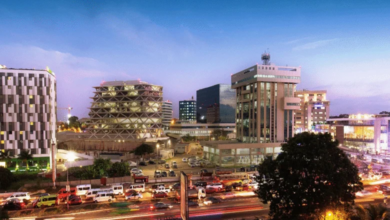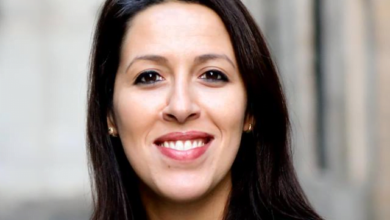Diasporas : Entrepreneurs “from both shores” making a difference

Often referred to as Africa’s sixth continent, the Diaspora has not always received the attention it deserves. Today, it is coveted by both the continent’s public officials and those of its host countries. For the billions of remittances it mobilizes every year, or for electoral purposes. Between the two, we are witnessing the emergence of a generation of entrepreneurs, active « here and there » and catalysts for change. Analysis.
By Dounia Ben Mohamed
Read more : Diasporas : Entrepreneurs “from both shores” making a differenceIn 2000, Thabo Mbeki, former president of South Africa, announced that the 21st century would be the century of Africa. The current situation can only prove him right, as the continent is more than ever at the heart of global geopolitical and economic issues. Nevertheless, in his famous « Renaissance » speech, more than a speech in reality, a « call », he urged his peers to take advantage of the diaspora. Talents scattered around the world whose skills must benefit the continent. “There is an urgent need for knowledge sharing and economic cooperation between Africa and the Diaspora,” he said. In other words, sharing knowledge to promote development. “If we were able to work better together with the Africans in the Diaspora, utilizing the skills and expertise that many of them have, many of these programs and projects will be implemented faster and I am certain more efficiently… the vision of the African Renaissance will become a living reality.”
Between 7% and 10% of GDP in various countries
Since then, it is clear that this Diaspora – between 170 and 350 million people, depending on the definition used, the majority of whom live in Europe – is attracting increasing interest. It is coveted by both the continent’s public authorities and those of the host countries. For several reasons. Starting with its economic weight. It is worth recalling that, for several years now, remittances sent by the diaspora to their families at home have been three to four times higher than development assistance.
According to the latest data from the African Union, the contribution of the African diaspora is estimated at more than 150 million dollars in 2021. Over the period 2010-2020, remittances to sub-Saharan Africa will amount to more than $440 billion (2.4% of GDP). These remittances to the continent represent an average contribution of between 7 and 10% of the GDP of each country, rising to more than 20% in some countries such as Cape Verde, Gambia and Lesotho.
The diaspora thus appears to be a major player in the development of the countries of origin. Hence the interest shown by the latter. Morocco, in particular, has set up a ministry for Moroccans living abroad (MRE) and a series of instruments to inform and support them, but also to make better use of these resources. However, while remittances are mainly used to meet basic needs (consumption, rent, education, health), only 10% of the $440 billion sent to sub-Saharan Africa (2.4% of GDP) is invested in projects or savings products in Africa. From now on, the challenge for the daughters and sons of the continent is to act in a more sustainable way for development through entrepreneurship.
« At the heart of their entrepreneurial project and success is the desire to meet a need expressed by the diaspora or the continent »
With their dual expertise, their internationally acquired skills and their mastery of the local context, more and more of them are developing and proposing innovative solutions, driven by the continent’s economic growth and the digitalization of the economy. Media, fintech, agribusiness, health, education, sustainable development, services… At the heart of their entrepreneurial project and success is the desire to meet a need expressed by the diaspora or the continent. Another special feature is that they do not limit themselves to their country of origin, but develop a regional or even continental approach.
In this way, they make a concrete contribution to the development of the continent. According to a survey published in February by the Presidential Council for Africa (CPA), 71% of French people from the African diaspora say they are willing to take part in a project relating to their country of origin. This figure rises to 76% among 18-24-year olds. “In addition to education and training, this preference for entrepreneurship is, in our view, the most valuable lesson, because it justifies the solutions we are implementing with our partners BPI France, the French Development Agency, Business France and Expertise France, » says Lauriano Do Rego, President of the CPA. “They all stem from the same observation: there is a strong potential for business creation and innovation that is still untapped.”
A potential now recognized
This potential is now being recognized, particularly in France. In his speech in Ouagadougou, President Emmanuel Macron confirmed his intention to rely on diaspora entrepreneurs to « reinvent France’s relations with African countries ». A number of programs have been set up to support their entrepreneurial ambitions. One of them is Meet Africa (read Interview Jérémie Pellet « MEET AFRICA: giving entrepreneurs the tools to do business in Africa).
Indeed, these innovative entrepreneurs from the diaspora are playing an essential role in creating a new dynamic and changing the way people look at Africa and its citizens, while tackling projects that have an impact on the development of the continent. This is particularly true in the area of fintech. While the cost of remittances remains high (6% on average in the second quarter of 2022; 6.3% in the Middle East and North Africa region, 7.8% in sub-Saharan Africa), many startups are proposing alternative solutions (read Portfolio: Focus on 5 profiles).






